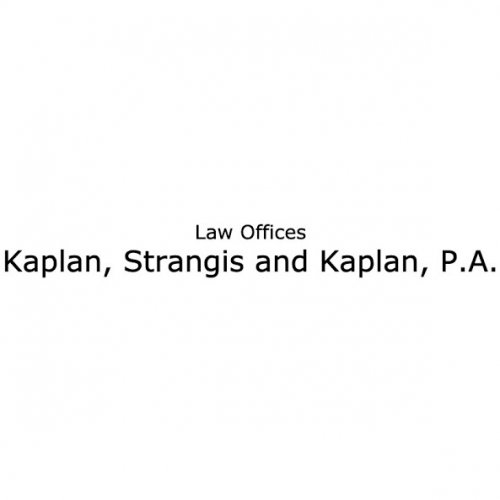Best Tax Increment Financing Lawyers in Minneapolis
Share your needs with us, get contacted by law firms.
Free. Takes 2 min.
List of the best lawyers in Minneapolis, United States
About Tax Increment Financing Law in Minneapolis, United States
Tax Increment Financing (TIF) is a public financing method used by municipalities, including Minneapolis, to subsidize community improvement projects, infrastructure development, and redevelopment in areas that are underdeveloped or in need of revitalization. The concept of TIF allows for future gains in taxes to finance current improvements that are expected to generate the conditions for those gains. In Minneapolis, TIF is frequently utilized as part of urban renewal strategies to stimulate private investment, reduce blight, and create jobs in economically challenged areas.
Why You May Need a Lawyer
Engaging a lawyer is crucial for navigating the complex legal landscape surrounding TIF projects. Common situations where legal help might be necessary include:
- Understanding the eligibility criteria for TIF projects and processes involved in obtaining financing.
- Negotiating terms between property developers and local governments.
- Ensuring compliance with local and state regulations governing TIFs.
- Assessing potential risks and liabilities associated with TIF agreements.
- Handling disputes or litigation related to TIF projects or agreements.
Local Laws Overview
Minneapolis follows specific state and city-specific regulations concerning TIF projects. Key aspects include:
- Eligibility and Usage: Projects must meet statutory requirements regarding the elimination of blight and promote employment, housing, or economic development.
- Approval Process: Includes public hearings and must be reviewed by city councils or redevelopment authorities before approval.
- Duration Limits: TIF districts generally have a maximum duration, often around 20-25 years, during which the increment can be captured.
- Expenditure Requirements: TIF funds must be used for eligible expenses such as infrastructure and improvements directly tied to the approved project goals.
Frequently Asked Questions
What is Tax Increment Financing?
Tax Increment Financing is a public financing method that uses future increases in property tax revenues generated by a redevelopment project to finance current improvements that will catalyze the conditions for those revenue increases.
Who qualifies for TIF in Minneapolis?
Both public and private projects can qualify for TIF; however, they must meet specific criteria addressing economic development, job creation, housing, or the elimination of blight.
How does TIF affect local taxes?
TIF does not increase taxes; instead, it reallocates property tax revenue from increased property values within the TIF district to fund the project-related improvements.
What are common projects funded by TIF in Minneapolis?
Typical TIF-funded projects include infrastructure improvements, commercial and residential developments, affordable housing projects, and renovation of blighted properties.
How long does a TIF district last?
In Minnesota, a TIF district commonly lasts for 20 to 25 years, though the duration can vary depending on the project scope and compliance with state guidelines.
Can TIF be used for any development project?
No, TIF use is limited to specific purposes such as economic revitalization, infrastructure, and community improvements as defined by the city and state laws.
Are there risks involved with TIF?
Yes, risks include project failures to generate expected tax increments or legal disputes over the TIF terms and project execution.
Who decides the allocation of TIF funds?
TIF allocations are determined by local government bodies, subject to statutory regulations and project-specific agreements.
How do developers apply for TIF through Minneapolis?
Developers must submit a detailed proposal to the local redevelopment authority or city council, which involves a comprehensive review process, public hearings, and compliance with statutory requirements.
What happens if a TIF project fails?
In case of failure, legal and financial repercussions may arise, including unmet obligations to stakeholders or legal action over the recovery of funds.
Additional Resources
For further assistance or information, consider consulting the following resources:
- The Minneapolis Community Planning & Economic Development Department
- Hennepin County Economic Development resources
- Minnesota Department of Employment and Economic Development
- Local development attorneys or law firms specializing in TIF
Next Steps
If you are considering or involved in a TIF project in Minneapolis and require legal assistance, follow these steps:
- Research and identify experienced local attorneys specializing in Tax Increment Financing.
- Schedule consultations to understand your legal rights and obligations related to your specific TIF project.
- Gather all relevant documentation regarding your project and proposed financing for substantive discussion with your legal advisor.
- Stay informed about ongoing developments in TIF regulations at both local and state levels that might impact your project or obligations.
Lawzana helps you find the best lawyers and law firms in Minneapolis through a curated and pre-screened list of qualified legal professionals. Our platform offers rankings and detailed profiles of attorneys and law firms, allowing you to compare based on practice areas, including Tax Increment Financing, experience, and client feedback.
Each profile includes a description of the firm's areas of practice, client reviews, team members and partners, year of establishment, spoken languages, office locations, contact information, social media presence, and any published articles or resources. Most firms on our platform speak English and are experienced in both local and international legal matters.
Get a quote from top-rated law firms in Minneapolis, United States — quickly, securely, and without unnecessary hassle.
Disclaimer:
The information provided on this page is for general informational purposes only and does not constitute legal advice. While we strive to ensure the accuracy and relevance of the content, legal information may change over time, and interpretations of the law can vary. You should always consult with a qualified legal professional for advice specific to your situation.
We disclaim all liability for actions taken or not taken based on the content of this page. If you believe any information is incorrect or outdated, please contact us, and we will review and update it where appropriate.














